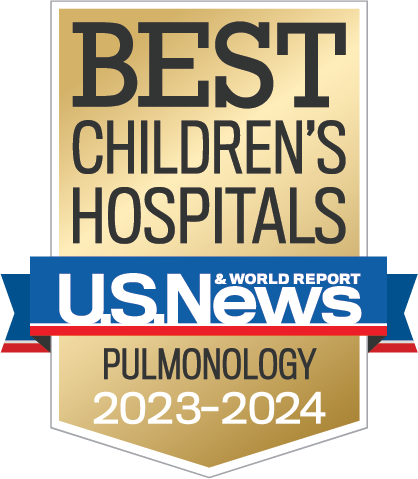Many lung and respiratory diseases have an underlying genetic cause. The Pulmonary Genetics Program, part of Boston Children’s Division of Pulmonary Medicine, can guide families and clinicians who are interested in seeking a genetic explanation for respiratory disorders or breathing problems in an infant, child, adolescent, or young adult.
When existing genetic tests come back negative or inconclusive, our team of pulmonary physicians, geneticists, and computer scientists can conduct a deeper investigation. Our work often leads to a revised interpretation of original test results. In addition to our own data analysis and research pipelines, we collaborate with the Manton Center for Orphan Disease Research, other labs around the hospital, and colleagues at other institutions. As a result, we now can frequently identify mutations in genes not previously known to be involved in lung disease, providing answers for our patients and their families.
Once testing results are in, we work with families to develop a comprehensive care plan. Our physicians and certified genetic counselors all have expertise in lung disease, and we can bring in other specialists as needed to provide long-term care or partner with a child’s existing care team.
Does my child need genetic testing?
Rare genetic lung diseases can often look like more common forms. Genetic testing can give further insight on a child’s illness and help in choosing better treatments. A genetic diagnosis can also help families know what to expect in the future and be aware of possible risks in other family members. Many families also use the genetic testing information in planning future pregnancies.
However, not everyone with lung disease needs genetic testing. These are some situations in which families might benefit from testing:
- the lung disease is severe, starts early in life, or does not respond well to treatment
- there is a family history of lung disease
- the illness is thought to have particularly rare or unusual features
- previous genetic test results were negative, inconclusive, or unclear
Leading the way in lung genetics
The Pulmonary Genetics program brings a team of pediatric pulmonologists and other specialists with experience in a broad range of lung diseases, including these and others:
- atopic disease
- severe asthma
- bronchiectasis
- bronchiolitis obliterans
- congenital diaphragmatic hernia
- congenital hypoventilation
- cystic fibrosis (CF)
- cystic lung diseases
- childhood interstitial lung disease (ILD)
- hereditary hemorrhagic telangiectasia (HHT)
- lymphangiectasia
- pneumothorax
- pulmonary hypertension and other pulmonary vascular diseases
- primary ciliary dyskinesia
- recurrent lung infections
- sleep-related breathing disorders/sleep apnea
- tracheoesophageal fistula
Our wide-ranging expertise enables us to better interpret our patients’ genetic test results, helping families avoid unnecessary tests and treatments. The program is also staffed by a dedicated pulmonary genetic counselor with extensive experience in working with patients with lung disorders.
Research on genetic lung diseases
The physicians in the Pulmonary Genetics program conduct National Institutes of Health-funded research aimed at understanding the genetic and environmental determinants of lung disease, and they also work with the Division of Pulmonary Medicine to conduct groundbreaking clinical trials in pediatric lung disease. We collaborate with research partners at Boston Children’s Hospital, as well as nationally and internationally, to identify rare or hard-to-find genetic causes of lung disease. When a new gene is discovered, we can then investigate how it causes disease and whether its effects could be reversed. As we find genetic causes, we can follow children with the same mutation to get insights about how the mutation relates to the pattern of symptoms, enabling us to provide more customized care.
Services offered in the Pulmonary Genetics Program
The Pulmonary Genetics Program provides comprehensive, one-stop services for children and young adults with lung disease. We can serve as a medical “home” or work alongside families’ existing doctors, ensuring continuity of care.
Consultations and genetic counseling
Most families begin by seeing an expert in pulmonary genetics familiar with their child’s form of lung disease, who will do a comprehensive evaluation and physical exam, take a detailed medical history, and review any available test results. Based on this evaluation, we then determine whether or not genetic testing is needed.
If genetic testing is recommended, our genetic counselor will lay out the testing options available, discuss implications for insurance coverage, and offer guidance around the testing process. The counselor may also suggest testing of parents and other family members.
Full-service genetic testing
We select the most appropriate tests based on the child’s medical history. These can include single-gene testing, gene panels, whole-genome or whole-exome analysis, and cytogenetic (chromosomal) testing, including karyotyping, and examination for copy number variants and structural rearrangements.
Once genetic test results are in, families meet again with a pulmonary geneticist and genetic counselor to review the findings and what they mean, and to discuss next steps in the child’s care. The counselor can also discuss implications of the test results for the rest of the family. Families often use the results in planning future pregnancies. Sometimes there are implications for family members’ own care if they are discovered to have the same genetic mutation. Our team is available to work with all family members.
Coordinated care
Some genetic disorders not only involve the lungs but can affect other organs. For example, cystic fibrosis affects the digestive, endocrine, and reproductive systems, while interstitial lung diseases can be associated with problems of the immune system, bone marrow, or liver. Depending on the genetic diagnosis, we can arrange for children to be seen by specialists in other fields to address the different aspects of their condition. Often, we can schedule these consultations together on the same day for families’ convenience.
Support
Because we see so many children and young adults with genetic forms of lung disease, we can often help families with rare conditions connect with one another and can help form support groups. We frequently hold patient information events and social gatherings so that our patients and their families know they are not alone.

